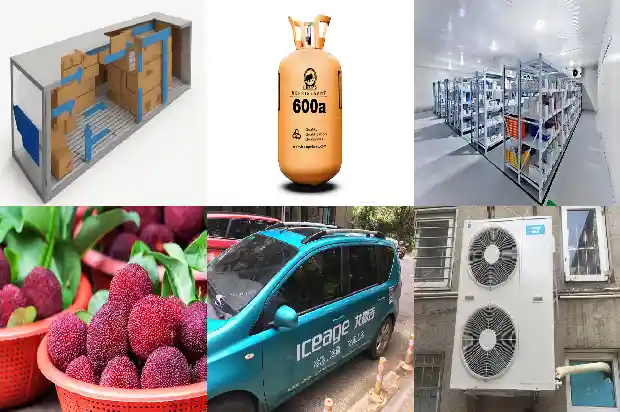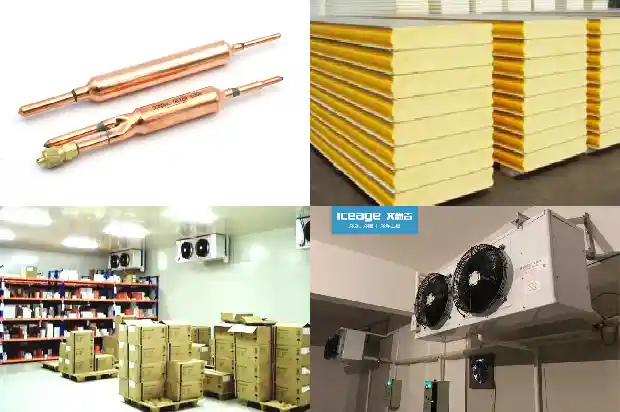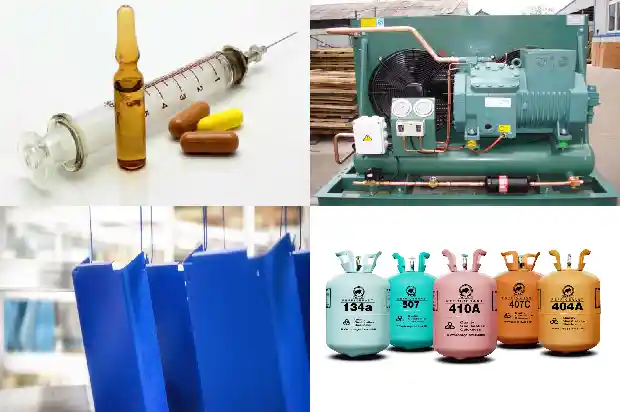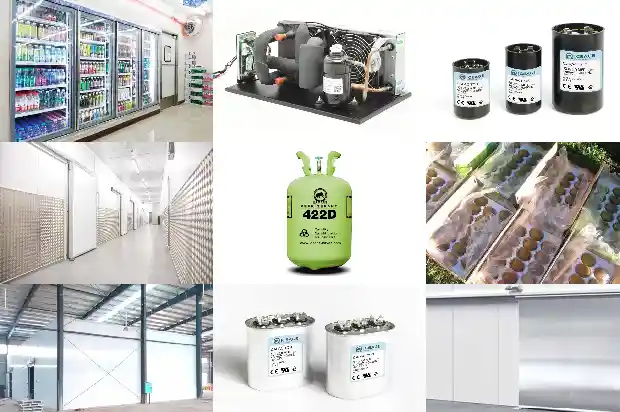Abnormal Phenomena and Causes during the Operation of Reciprocating Refrigeration Compressors
2025-03-12
The compressor is one of the most important devices in the refrigeration system, and it is known as the "heart" of the refrigeration system. There are many types of refrigeration compressors, and the reciprocating refrigeration compressor is still one of the most widely used types in the refrigeration system at present. This article focuses on introducing the common fault phenomena and the main existing causes during the operation of the reciprocating refrigeration compressor.
I. The cylinder temperature of the compressor is high.

II.


III. There is a knocking sound in the cylinder of the compressor. Due to the too tight clearance of the cylinder, when the piston expands due to heat, the piston hits the safety false cover; or due to the too large clearance of the cylinder, the large and loose clearance of the piston pin, the up-and-down movement of the piston will generate knocking, and a regular and slight knocking sound will be emitted. Or the knocking sound is generated due to the fragments of the air valve falling into the cylinder.
IV. The bearing temperature of the compressor is high. Due to the poor quality of the bearing material and manufacturing, or improper assembly, too small clearance, and unqualified lubrication, etc., the bearing temperature will rise. The bearing bush will run out of oil due to the poor quality of the lubricating oil and the blockage of the oil circuit; reasons such as insufficient oil quantity or the failure of the oil pump will cause the alloy on the bearing bush to overheat and melt.
V. Due to reasons such as improper assembly, excessive spring force, and inadequate lubrication of the compressor's seal (sealing ring), the temperature will be too high. In severe cases, the seal will be damaged, resulting in air leakage, oil leakage, and refrigerant leakage of the seal, causing operation failures.
VI. The lubrication system is abnormal. The oil pressure is too low or the oil pressure cannot be built up. This is because the clearance of the oil pump gears is excessively worn, and the transmission parts of the oil pump fail; the oil pressure is improperly adjusted, the oil level is too low, and the oil filter screen is blocked, etc.; there is also an important reason: due to the reasons of the system and operation adjustment, the liquid refrigerant enters the compressor, the compressor is subject to liquid hammer and frosts, a large amount of foam is generated in the oil, the oil temperature drops sharply and the oil pressure cannot be built up, resulting in the failure of the unloading device of the compressor, which has a great impact on the lubrication system.
VII. The oil consumption of the compressor increases. The main reasons are: the oil pressure and oil temperature are too high, and too much oil is added usually; the wear clearance of the compressor is too large, the air valve does not close tightly, the clearance of the oil ring lock opening is too large or the spring force is insufficient, and the lubricating oil is carried into the system during compression; due to some drawbacks in the process, the efficiency of the oil separator is low, and the oil return effect is poor, resulting in an increase in oil consumption; also due to improper system and operation adjustment, the liquid refrigerant enters the lubricating oil of the compressor, the compressor is subject to liquid hammer and frosts, and the lubricating oil in the crankcase (oil tank) is all carried into the system instantly, resulting in a large amount of lubricating oil loss in an instant.
VIII. The exhaust temperature and pressure of the compressor are too high. At first, due to the reasons of the system, the harmful superheat of the return gas increases, and the high suction temperature of the compressor leads to an increase in the exhaust temperature. In addition, the rupture of the compressor valve plate, the damage of the air valve group, the air leakage of the safety bypass valve, the insufficient or interrupted cooling water quantity of the unit, and the too high water temperature, etc., will all cause the exhaust temperature of the compressor to rise. Factors such as excessive refrigerant filling in the system and poor condensation effect will cause the exhaust pressure (condensing pressure) to rise.
IX. The compression performance of the compressor decreases, the compression efficiency is low, and the refrigeration capacity decreases.

Related Articles
- Essential for Maintenance! Parameters and Phenomena of Normal Operation of Refrigeration and Heating Systems
- Analysis of the Causes of Frost Formation at the Suction Port of the Refrigeration Compressor
- Common Fault Causes and Solutions of Cold Storage Systems
- Common Fault Causes of Totally Enclosed Refrigeration Compressors
- Analysis of the Causes and Hazards of Corrosion in the Circulating Water System
- Common Fault Causes and Replacement of Multi-connected Unit Compressors
- What Causes the Indoor Unit of an Air - conditioner to Freeze? Here's the Answer~
- Analysis of Causes for Compressor Liquid Hammer, Overheating and Pre - heating
- Causes and Solutions of Ice Blockage, Dirt Blockage and Oil Blockage
- What Are the Common Causes of High - pressure Faults in Chillers?
- What Are the Common Causes of Cold Air Blower Noise?
- Air - conditioner Low - pressure Alarm? These Nine Common Causes
- What Are the Causes of Scroll Compressor Damage?
- Causes and Prevention of "Primary Condensation" and "Secondary Condensation" in Fan - Coil Units
- 10 Symptoms and Causes of Abnormal Frosting in Heat Pumps
- Common Causes and Analysis of High and Low Pressure Alarms
- Common Causes and Analysis of Compressor Thermal Protection
- 4 Points on Causes of Water Leakage in Closed Cooling Towers
